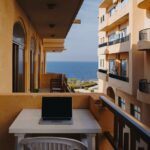How much money do I need to live in Dominica? Is it expensive to live in Dominica? These questions are essential to those seeking to live in this beautiful Caribbean country.
To help you gain a better understanding of Dominica’s cost of living, we’ve created this comprehensive guide covering several factors, including real estate prices, healthcare expenses, and everyday costs. Read on to learn more!
Understanding the Cost of Living in Dominica
Compared to the US or Europe, the Dominica living costs are relatively low. Renting and real estate property prices are lower than in most Caribbean islands, local products are cheap, as well as transportation. If you’re on a budget, retiring in Dominica is ideal.
As a reference, you can expect a family of four monthly costs to be about $3,200, without rent. A single person’s estimated monthly costs would be $860, excluding rent.
A loaf of fresh white bread is $2.59, roughly the same price as a pint of beer in a bar. A prepaid mobile tariff costs $0.32 per minute, and unlimited data internet costs $65. A monthly pass for a leisure fitness club is $37. The average cost of electricity in Dominica for a residential property is $0.21 per kWh versus $0.15 in the US.
Eating and Dining Out in Dominica
Restaurant prices are cheap in Dominica. Filled with bars and restaurants, this is a great place to eat out and among the best things to do in Dominica. Try out the delicious local cuisine, a blend of local, Native American, Spanish, French, and English influences.
In Dominica, there are different dining options, and prices vary accordingly. A meal in an inexpensive restaurant equals about $7, while a three-course meal for two people in a mid-range restaurant equals $55. A meal at KFC or an equivalent combo meal costs $6.66.
Also, remember that imported and domestic beers are cheaper than in most countries, with a Domestic beer costing $1.85 at a restaurant versus $6 on average in the United States.
Dominica Local Transport Costs
Taxis and buses are privatized and available mostly everywhere in Dominica at considerably lower prices than in the US. You will soon discover that taxis are the most popular and affordable way to commute on the island. The average cost per kilometer is $3.70. A one-way ticket on Dominica public transport costs just $0.93 compared to the US average cost of $2.50.
For purchasing a vehicle in Dominica, the cost to buy a Total Corolla Sedan or the equivalent new car is significantly higher than in the US. Vehicles imported into Dominica incur a customs duty of 40 percent, along with a four percent customs service charge. Additionally, there’s an environmental levy, which amounts to EC$ 3,000 ($1,110) for vehicles over five years old or one percent for those under five years old.
Dominica Health Care Cost
Community health services are free for Dominica citizens and permanent residents, and affordable private health services are also available; however, you might find few specialized health services. It is recommended to buy a private health care scheme when relocating to Dominica. Health insurance companies such as Allianz, Cigna Global Health, and Clements Worldwide offer full coverage for those retired in Dominica.
Cost of Groceries in Dominica
The cost of groceries in Dominica is relatively cheap, contributing to the country’s overall low cost of living. Local products such as rice, fresh bread, local cheese, fresh fruits, and vegetables are cheaper than in the US and the UK. However, imported products such as milk and clothing are more expensive.
One of the best ways to keep a low budget is to consume locally. Dominica’s local markets provide plenty of local products at reasonable prices. Here are the average prices of everyday groceries in Dominica vs the US.
Product | United State | Dominica |
Fresh white bread (500g) | $3.57 | $2.59 |
Rice (1kg) | $4.58 | $1.36 |
Local cheese (1kg) | $12.87 | $2.41 |
Chicken fillets | $12.17 | $5.55 |
Oranges (1kg) | $4.50 | $4.08 |
Potatoes (1kg) | $3.02 | $2.86 |
Study Costs in Dominica

Most of the universities are private. The registration fees will vary from universities; however, below is an estimation of fees for international students for a year at private universities such as All Saints University School of Medicine.
- Fees for international undergraduates are estimated at $11,900 per year
- Fees for international graduates are estimated at $17,850 per year
Students also have the opportunity to reside in on-campus housing if they wish – at an additional price.
Real Estate Costs in Dominica

Dominica is one of the most affordable Caribbean states for renting, and it’s not hard to find Dominica apartments for rent at affordable prices. You can find a one-bedroom apartment in the city center for $330 per month compared to $1,750 in the US.
The average monthly rent for a three-bedroom apartment is $950, much lower than other Caribbean countries and the United States average rent of $2,940. Outside the city center, prices are even cheaper: A one-bedroom apartment costs $230, and a three-bedroom apartment costs $620.
Dominica real estate
Dominica real estate is cheaper than the rest of the Caribbean countries due to the island’s preservation from mass tourism. Instead, this Caribbean island is renowned for its eco-friendly tourism and preserved pockets of tropical nature.
Foreigners can purchase real estate, such as a luxury eco-friendly villa, for as little as $255,000 to qualify for the country’s citizenship program. The cheap real estate prices and opportunity to obtain citizenship in the process make the country a popular Caribbean retirement destination among American retirees.
Estate agents operating in Dominica such as 7th Heaven Properties and Realty Dominica offer four bedroom properties in Roseau, St George for $270,000 and six-bedroom family homes in Salisbury, Saint Joseph for $800,000.
Dominica Citizenship Cost
Launched in 1993, the Dominica Citizenship by Investment program allows foreign investors to obtain Caribbean citizenship and a Dominica passport through a minimum contribution of $200,000 to the country’s National Development Fund or a real estate purchase of at least $200,000. Obtain second citizenship in six to nine months for you and your family, along with owning a beautiful property in Dominica.
There are plenty of properties for sale in Dominica, such as shares in luxurious resorts, relaxed eco-lodge, fancy apartments, and beautiful villas. Some of the best places to live in Dominica are Roseau, Portsmouth, Soufriere, and Marigot.
The cost of obtaining citizenship in Dominica also require s foreign nationals to pay administrative fees including government, due diligence, and passport fees.
Frequently Asked Questions about Dominica's Cost of Living
What is the currency in Dominica?
Dominica’s official currency is the Eastern Caribbean dollar, which is pegged to the value of the US dollar at 2.7 ECD to 1 USD.
Is Dominica expensive?
Dominica’s living costs are relatively low compared to many Caribbean islands, the US, and the UK. Local groceries, transports, and rents are low-cost. The low real estate prices make it one of the most affordable Caribbean countries to purchase real estate.
What are the best places to live in Dominica for expats?
Whether you are planning to retire in Dominica or live and work in the country, some of the best places for expats are Roseau, Portsmouth, Marigot, and Soufriere.
Is food expensive in Dominica?
Depending on what you purchase, grocery expenses can be cheap. Locally produced food is relatively low-cost, while imported products such as milk and clothing are more expensive than the average. Dining at a mid-range restaurant costs about $7.40 with red table wine, which means Dominica is much cheaper than the United States.
Is Dominica real estate expensive?
Dominica real estate is cheaper than the rest of the Caribbean. The cost of renting is also very cheap – a one-bedroom apartment in the city center equals $330, and it’s around $220 outside the city center.
How much money do I need to live in Dominica?
A monthly budget of $1,500 to $2,000 is sufficient for a single person living in Dominica to enjoy a comfortable standard of living which includes a normal tariff for a smartphone contract, dining out frequently at an inexpensive restaurant, and a monthly fee for membership at a leisure fitness club.
What is the average income in Dominica?
Dominica’s average monthly salary is between 1,000 to 1,500 Eastern Caribbean Dollars (equivalent to $370 to $555).




